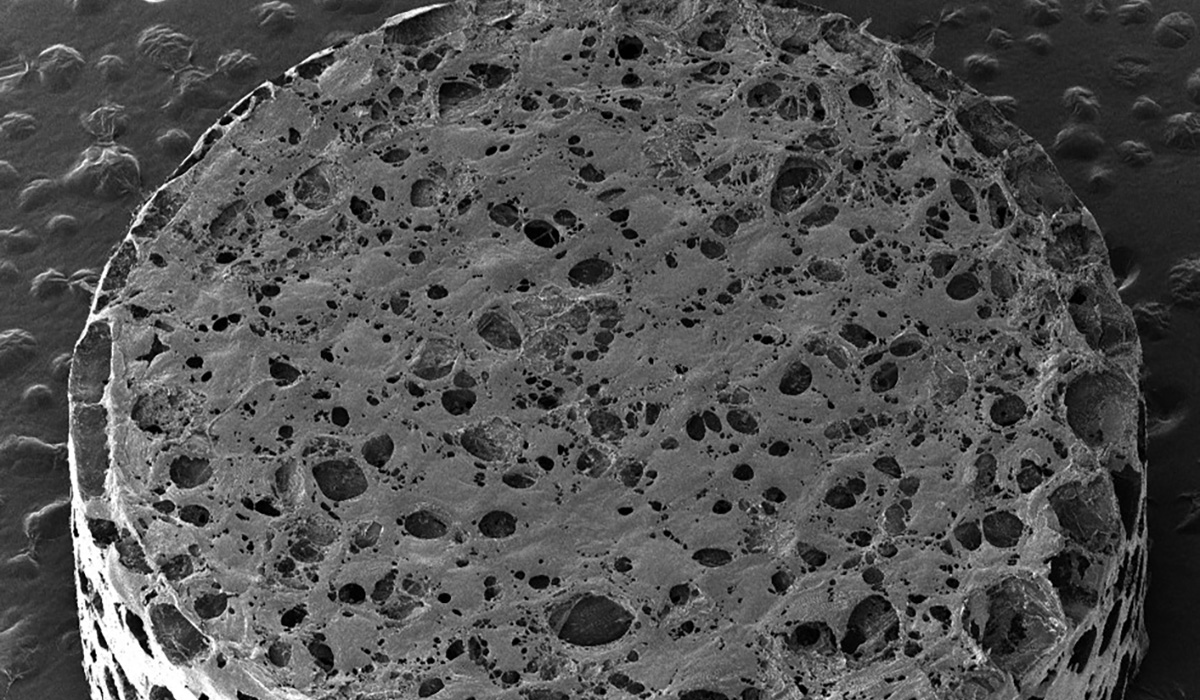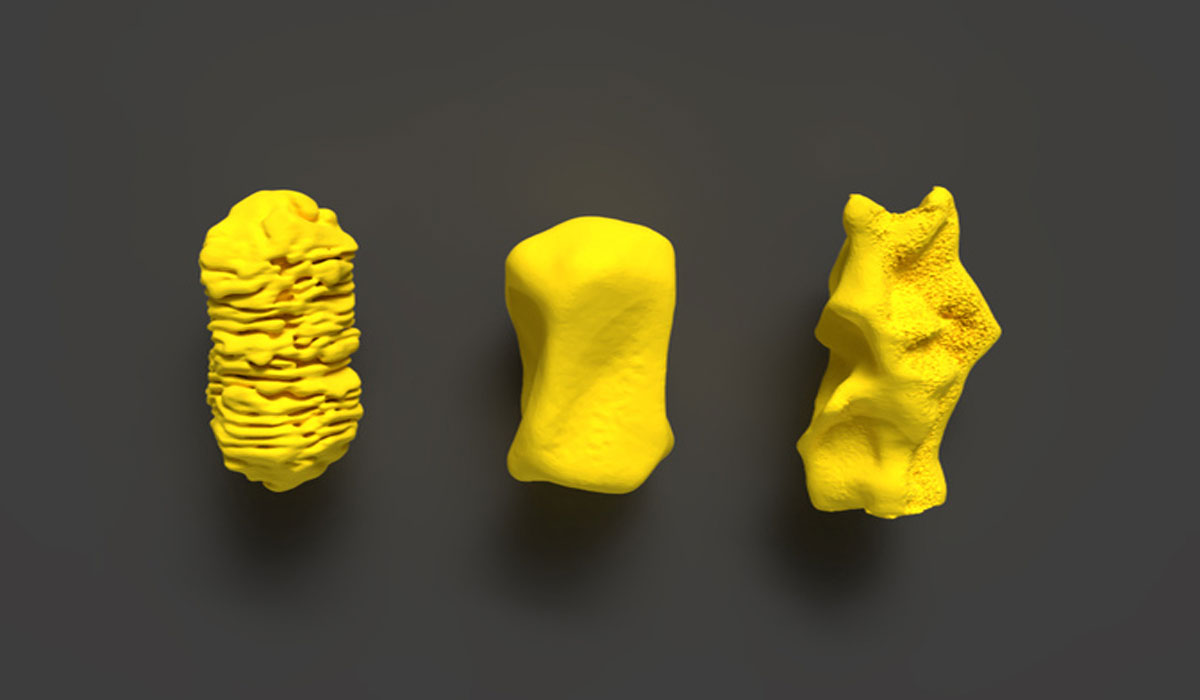A sponge-like implant in mice helped guide a treatment that slowed or stopped a degenerative condition similar to multiple sclerosis in humans. It also gave University of Michigan researchers a first look at how primary progressive multiple sclerosis, the fastest-progressing version of the disease, attacks the central nervous system early on. If administered early, the nanoparticle-based treatment prevented mice from developing symptoms such as paralysis.




